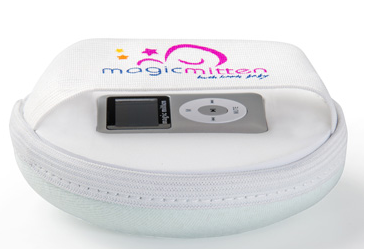Milk makes me bloated!
Q. I like milk but it gives me digestive problems, principally bloating. I am not lactose intolerant. Would another type of cow’s milk be OK? A. I think you mean A2 milk, which is popular in New Zealand and Australia and is now available in the UK. It is a complicated story, which goes back millennia.
Most cases of milk intolerance are attributed to lactose, a sugar in milk. Twenty per cent of people report abdominal discomfort linked to cow’s milk (including bloating and constipation) but only six per cent are lactose intolerant, leaving 14 per cent unaccounted for. Some scientists believe casein, the major protein in cow’s milk, may be a culprit.
There are two main forms of casein today: A1 beta-casein and A2 beta-casein. In human milk, all beta casein is A2. This is also the original type that cows produced thousands of years ago before they were domesticated. Sheep and goats also produce A2 milk. ‘It is considered safe and nutritious and has no known negative effects on human health,’ writes clinical nutritionist Sue McGarrigle in the British Association for Applied Nutrition & Nutritional Therapy newspaper.
Over 5,000 years ago, however, a genetic mutation occurred in some European dairy herds – mainly holstein and friesian – that changed the type of beta-casein from A2 to A1. Today, about three quarters of the world’s dairy herds produce mixed A1/A2 milk. (Guernsey herds produce the highest percentage of A2.)
A1 milk seems to be digested differently to A2, which may cause problems for some people. The A1 beta-casein releases a peptide called beta-casomorphin-7 (BCM-7), which is an opioid. When BCM-7 is released in the gut, it can slow down the digestive process and cause constipation (a known side effect of opioid drugs). The slow transit may also cause fermentation, which leads to bloating.
Bovine BCM-7 has been found in formula-fed babies, who often suffer constipation. BCM-7 may cause problems in people with leaky gut syndrome. If the opioid molecules go through the gut wall into the bloodstream, it is thought they may be linked to heart disease, type 1 diabetes and conditions including autistic spectrum disorders. Research is ongoing.
Discuss any continuous bloating with your doctor as it may be linked to an underlying problem. But it may be worth trying A2 milk to see if you can tolerate this better. For stockists, visit www.a2milk.co.uk.
A HANDY HELP FOR NEW MUMS
The Magic Mitten is an electronic baby-calming device, which plays three types of white noise – ‘mother’s heartbeat’, ‘ocean waves’ and ‘rain on a tin roof’. The cushioned mitten has a strap to go round your hand so you just press ‘on’ and hold it to your baby’s ear. Our tester found ‘it worked pretty well for 12-week-old Connie when she had one of her unexplained crying fits’. £40, from www.jojomamanbebe.co.uk.
YOUR GUIDE THROUGH HER BREAST CANCER JOURNEY
Katherine Formosa Bown was diagnosed with an aggressive type of breast cancer in 2009 and went through surgery, chemotherapy and radiotherapy. Later, close friends and family confessed ‘they felt totally helpless and unsure of the right things to say or do’. So Katherine decided to provide the answers in this book. Here is her advice if you have a friend with cancer:
• If you’re one of the first to hear the diagnosis, offer to call close family and friends (makesure no one posts it on social media sites).
• Set up a photo-sharing box (Instagram, Dropbox) and ask friends and family to keep her up to date with what they are doing. She could also set up a new free email account so people can send good wishes and news.
• Instead of a get-well-soon card, send a blank card with your own positive loving words.
• Gift-wise, magazine subscriptions, DVD box sets and books are good, especially comedy.
• Share activities such as compiling a recipe journal, knitting, painting and gentle exercise such as walking or yoga.


